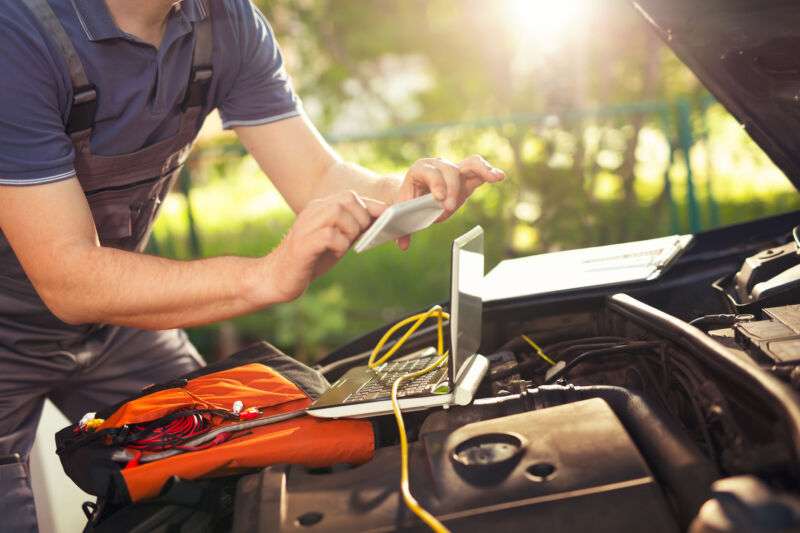
Should Massachusetts extend its right-to-repair law to connected cars?
The proposal is well-meaning, but vague language risks car hacking. …

reader comments
89 with 57 posters participating, including story author
In 2013, voters in Massachusetts passed a law that requires car manufacturers to sell diagnostic software to third-party repair shops. It was the first automotive “right to repair” law in the country and was a response to the escalating trend of automakers blocking access to vehicle diagnostic data to everyone other than their respective franchised repair networks. This year, campaigners are returning to the ballot box to expand the state law to now include any wireless (or telematic) data.
Part of Massachusetts’ existing right to repair law requires, from model year 2018 onward, that every vehicle has “a non-proprietary vehicle interface device”—invariably an OBDII port—by which owners and independent garages can access diagnostic information.
But the auto industry is going wireless. Unlike in the European Union, there’s no federal requirement for an embedded modem in every new vehicle, but it’s still becoming hard to buy a new car or truck that doesn’t have some form of onboard connectivity and the ability to communicate with home when it’s in distress.
That’s where Massachusetts Question 1 comes in. If passed, it would extend the existing legislation such that it would also cover telematics, which it defines as:
any system in a motor vehicle that collects information generated by the operation
Continue reading – Article source
Similar Posts:




